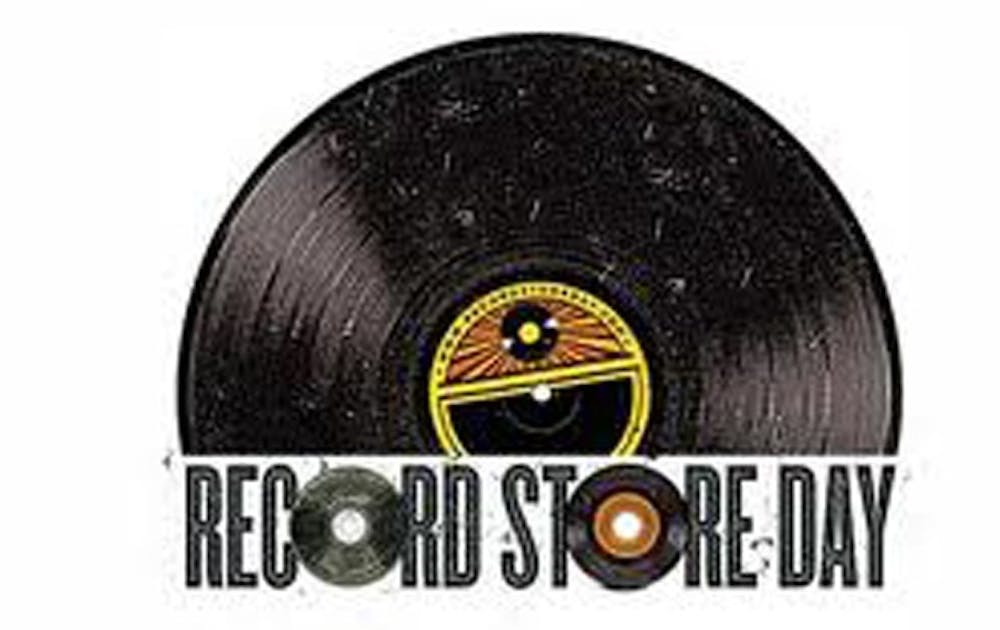On a Wednesday afternoon, three days before the fifth annual Record Store Day, employees at Schoolkids Records in Raleigh are clearing shelf space to make room for new arrivals. Owner Stephen Judge talks to the frontman of a Fayetteville, NC metal band who evidently wants Judge to stock his CD. Judge patiently explains why he can’t afford to purchase a number of copies sight unseen.
“It’s just the economics, man,” Judge says, summing up the plight of a thousand independent record stores in five words.
The scene captures the everyday challenges facing music retailers as well as the promise of Record Store Day, an annual celebration of independent record stores. Since the first edition in 2008, stores across the globe have collaborated with artists, labels and distributors to offer a range of new music releases available exclusively on the third Saturday in April.
For Record Store Day 2012, more than 200 special releases will be available exclusively at participating stores. For the most part, the releases are more collectors’ items than essentials—a live recording of Animal Collective’s performance piece Transverse Temporal Gyrus, for example, or a 7” of “Lazuli,” the first single from Beach House’s upcoming album Bloom. But between the sheer breadth of offerings and the big-name artists participating—Bruce Springsteen and Coldplay, among others—demand for these limited edition odds and sods has made Record Store Day the most important one of the year for independent sellers.
“Last year on Record Store Day, we had the biggest day in the 38-year history of the store, by a lot,” Judge said, estimating that Schoolkids did ten to fifteen times as much business as in a typical day. “It’s astonishing how well we did.”
To capitalize, Schoolkids has turned the day into a full-fledged event, featuring five live shows by local bands including Delta Rae. Business was similarly good for Bull City Records, the psych- and folk-leaning independent retailer located just off East Campus.
“Every Record Store Day thus far has been the biggest day in the history of the store,” said owner Chaz Martenstein. “Last year, I did just shy of a month’s worth of business in one day.”
For storeowners like Martenstein and Judge, who purchased the Raleigh institution from long-time owner Mike Phillips in 2010, the bottom line boost from Record Store Day is sorely needed. The technological advances of the last decade have had a seismic impact on every level of the music industry, from major labels to music magazines, but they’ve been particularly hard on record stores. The advent of taste-making blogs, online retailers like iTunes and file-sharing websites amounted to a perfect storm for retailers, who were suddenly faced with the task of selling a product now available for the price of a Google search or two. The demise of legendary Sacramento-based retailer Tower Records, which filed for Chapter 11 bankruptcy in 2006, was emblematic of an industry whose margins and market share were in free fall. Schoolkids, which once boasted five locations, scaled back to one flagship store on Hillsborough Street.
“The difference between the record store when I started working in the 1990s and the record store now is enormous,” Judge said. “We had the luxury in the 1990s of being there for the peak of sales of the CD format.”
As those sales evaporated, independent retailers had to adapt to avoid closing their doors.
“We’re in an industry where 100 percent of our stock is available for free, in some form or another,” Martenstein said. “You can’t gripe about .mp3s, because they’re not going away, but we’ve learned how to work with [this environment].”
An important part of independent stores’ success lies in catering to the right clientele. Rather than courting the average listener, Schoolkids and Bull City sought out the music enthusiast—the one willing to pay $20 for a high-fidelity vinyl record rather than download a 128 kilobyte-per-second .mp3, or leave home to get personalized recommendation instead of clicking through Pandora.
“Convenience is great, and we can’t compete with iTunes on that front,” Martenstein said. “But we can offer something else: interaction, community, a place to stop in and chat and run into your friends flipping through records.”
The vibrant Triangle music scene is another important asset for independent stores. The Independent Weekly’s Hopscotch Festival raises the profile of record stores and of the local artists whose music they stock. Merge Records will distribute special releases this Saturday by Destroyer, M. Ward, Richard Buckner and Arcade Fire. Jay Lowe, the label’s retail coordinator, estimates that more than half of all of Merge’s sales come from brick-and-mortar retailers.
And, while technology continues pushing file formats forward, record stores’ revenues are increasingly derived from an archaic source: vinyl. Long the province of collectors and mega-fans, the format has become in vogue among a larger segment of record buyers for the greater fidelity it offers.
“People don’t really buy CDs to use them, they just rip them and put them into iTunes. Vinyl is different, and new vinyl buyers don’t think about the format as downloadable music,” Martenstein said. “Sales of physical formats are up for the first time in a while, and its not CDs.”
Regardless of the format, record stores are getting back to convincing customers that the service they provide is worthwhile. With the largest Record Store Day yet on the horizon, independent retailers are set to fight another day.
Get The Chronicle straight to your inbox
Sign up for our weekly newsletter. Cancel at any time.

